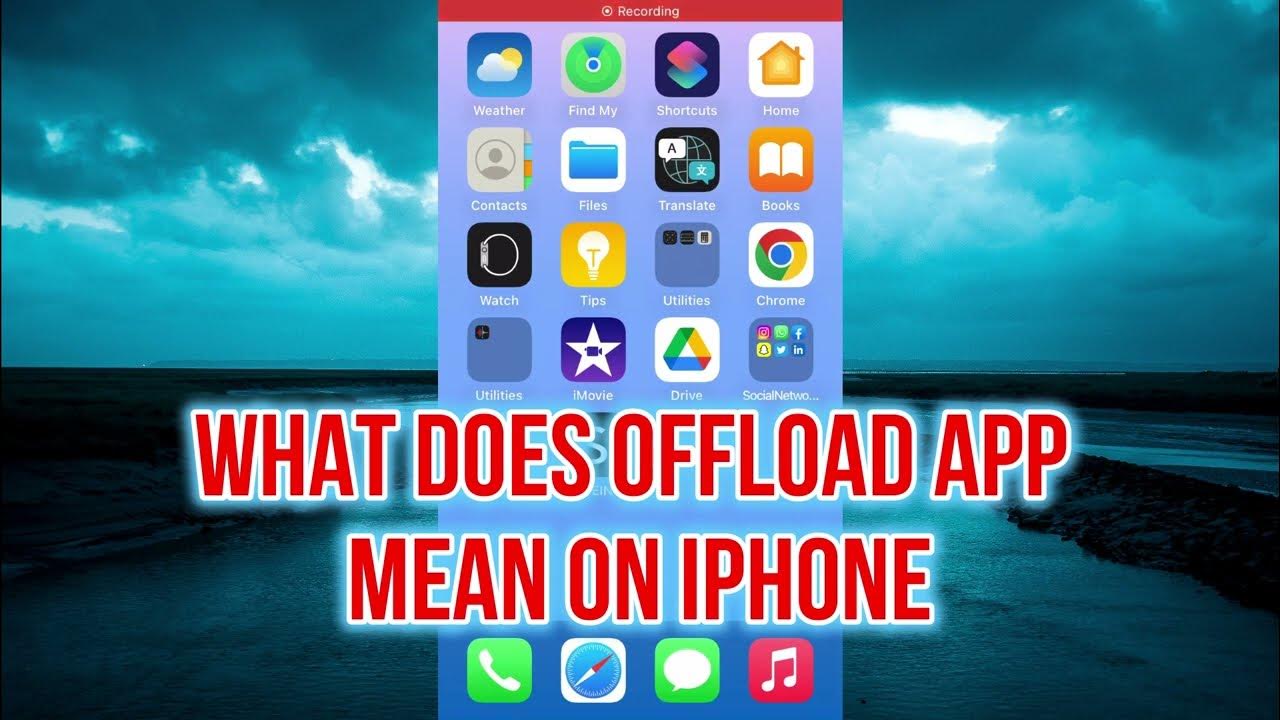Offloading an app can seem like a technical term reserved for developers, but it holds significant importance for everyday users as well. Understanding what it means to offload an app is crucial in managing your device's storage, improving performance, and ensuring efficient usage of your mobile applications. In this comprehensive guide, we will explore the concept of offloading apps, how it works, its benefits, and when you should consider doing it. By the end of this article, you’ll have a clear understanding of the term and practical insights on managing your apps effectively.
The digital landscape is ever-evolving, and with the plethora of applications available today, managing these apps efficiently has become a necessity. Offloading is one of the techniques that users can employ to reclaim storage space without losing any data. This guide will delve into the nuances of offloading apps, shedding light on its implications for both users and developers alike.
Whether you’re looking to free up space on your phone or simply want to understand more about app management, this article will provide you with valuable information. We’ll cover everything from the technical definition of offloading to practical steps you can take to implement it on your devices. Let’s dive into the world of app management and discover what offloading truly means!
Table of Contents
- What is Offloading an App?
- Why Should You Offload an App?
- How to Offload an App
- Offloading vs. Deleting an App
- Benefits of Offloading Apps
- When to Consider Offloading Apps
- Common Misconceptions About Offloading
- Conclusion
What is Offloading an App?
Offloading an app refers to the process of temporarily removing an application from your device while retaining its data and documents. When you offload an app, the app itself is deleted, but its associated data is preserved. This means that when you decide to reinstall the app, all your previous settings, documents, and data will still be there. Offloading is particularly useful for users who want to free up space without losing important information.
Why Should You Offload an App?
Offloading apps can be beneficial for several reasons:
- Storage Management: It helps manage storage effectively, especially on devices with limited space.
- Performance Improvement: Offloading can improve device performance by freeing up resources that were previously used by the app.
- Data Preservation: Users do not have to worry about losing their data, as it remains intact even after the app is removed.
How to Offload an App
Offloading an app is a straightforward process. Here’s how you can do it on different platforms:
On iOS Devices
- Open the Settings app on your iPhone or iPad.
- Tap on General.
- Select iPhone Storage or iPad Storage.
- Scroll down and find the app you want to offload.
- Tap on the app, and then select Offload App.
- Confirm your choice.
On Android Devices
- Open the Settings app on your Android device.
- Tap on Apps or Applications.
- Find and select the app you wish to offload.
- Tap on Uninstall or Disable (note that this may vary by device).
- Confirm your action.
Offloading vs. Deleting an App
It is essential to understand the difference between offloading and permanently deleting an app:
- Offloading: Retains app data, allowing for easy reinstallation.
- Deleting: Permanently removes the app and all associated data from your device.
Choosing to offload rather than delete can save time and prevent data loss, making it a preferred method for many users.
Benefits of Offloading Apps
Offloading apps comes with several advantages:
- Easy Reinstallation: Users can quickly reinstall the app without losing any data.
- Free Up Space: It helps free up valuable storage space on your device.
- Reduced Clutter: Keeps your device organized and clutter-free.
- Improved Performance: Enhances overall device performance by removing unused apps.
When to Consider Offloading Apps
Knowing when to offload an app can help maintain your device’s performance and storage. Consider offloading when:
- Your device storage is running low.
- You haven’t used an app in a while but want to keep its data.
- You notice a decline in your device’s performance.
Common Misconceptions About Offloading
There are several myths surrounding the concept of offloading apps:
- Offloading Deletes Data: A common misconception is that offloading an app deletes all data. This is not true, as data is preserved during offloading.
- Only Developers Use Offloading: While developers may use offloading for testing, everyday users can benefit significantly from it as well.
Conclusion
In conclusion, offloading an app is a practical solution for managing storage and maintaining device performance without the fear of losing important data. Understanding how and when to offload apps can significantly enhance your mobile experience. If you found this article helpful, consider sharing it with others or leaving a comment below. For more insights on app management and technology, feel free to explore our other articles!
Thank you for reading! We hope to see you back here for more informative content in the future.


